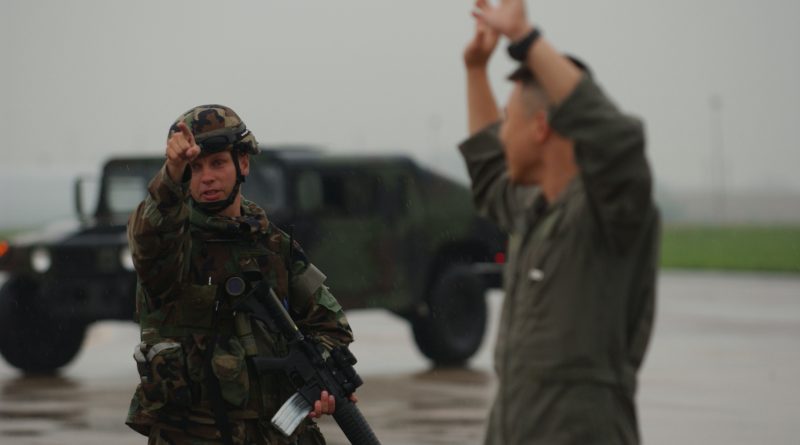North Korean Soldier Defects to South, Drawing International Speculation
By Stephanie Miller
Staff Writer
On Saturday, November 30, South Korean forces recovered a fleeing North Korean soldier, just south of the Korean Demilitarized Zone, the first reported incidence of Northern defection in almost a year, reports the New York Times.
The South Korean military safely escorted the North Korean soldier away from the demarcation zone, and he is now in the custody of the South Korean government. The South Korean military issued an official statement stating plans to debrief the solider and attempt to determine his motives for defecting.
The soldier’s plight comes at an unusual time in North-South Korean relations. According to USA Today, both country’s militaries agreed to begin dismantling all guard posts inside the 155-mile long border during a September leaders’ summit in Pyongyang.
This past week, Seoul’s Defense Ministry confirmed the demolition of ten of the estimated 160 North Korean guard posts along the border, as well as the gradual removal of ten of its own posts. Both governments will jointly verify each other’s work once demolitions are complete at the end of December.
In addition, the Koreas have also taken steps to disarm the shared border village of Panmunjom, USA Today reports. Live-fire drills along the border halted this past month, and efforts are underway to remove front-line landmines so that both militaries can conduct joint searches for soldiers killed during the Korean War dead.
While the New York Times states that there was no unusual movement from the North Korean Army at the time the soldier crossed, the Korea Risk Group’s news agency, North Korean News Organization, reports that there had been “peculiar movements by the North Korean military on the front line in the region where the defection took place.” Furthermore, the South Korean Joint Chiefs of Staff’s official statement resisted using the term “defection” when describing the incident, which was not the case with similar occurrences last year.
While the last incident of a North Korean soldier defecting across the demarcation zone was in December 2017, a more publicized attempt occurred one month before when North Korean guards wounded a low-ranking officer as he “dashed through a hail of bullets,” according to the New York Times. The Guardian reported later that the North Korean military took steps to fortify the location where the soldier sprinted to freedom.
It is rare for defectors to escape across the Demilitarized Zone directly. The border is fortified by layers of barbed-wire fences, minefields, and armed sentries on both sides, and soldiers selected for border duty have historically demonstrated fierce loyalty to the North Korean regime. North Korea analyst Martyn Williams told The Telegraph, “It’s not easier for anyone to get close to the border, so while this soldier might have seen a chance, it’s probably still an incredibly risky thing to do.”
Because of their proven dedication to the regime, the South Korean military heavily scrutinizes North Korean soldiers and high-profile party elite who succeed in defecting, a fact that could explain why it is so unwilling to label the latest deserter as a true defector just yet.
North Korea does have a history of disguising its operatives as defectors and sending them south to gather intelligence on former North Korean citizens living abroad. In March 2014, South Korean news agency Dong-a Ilbo reported that the Seoul Central District Public Prosecutors` Office indicted a North Korean spy for entering the south and gathering information on defectors living there.
However, another reason that South Korea is so unwilling to label the latest deserting soldier a defector may be the fact that they are now unwilling to label anyone as a defector at all. This past October, Yonhap News reported that the Seoul Central Court posthumously acquitted alleged North Korean spy Lee Soogeun of espionage and issued its apologies to his family for his wrongful 1969 execution.
Such a public embarrassment on the part of the South Korean judicial system and intelligence community may explain their hesitance when approaching the issue of defection.


